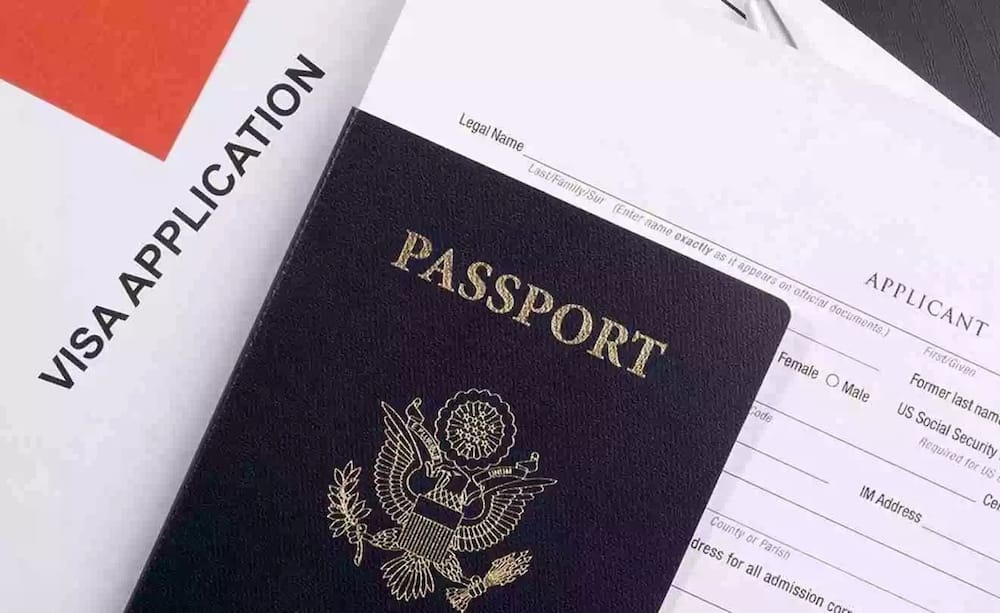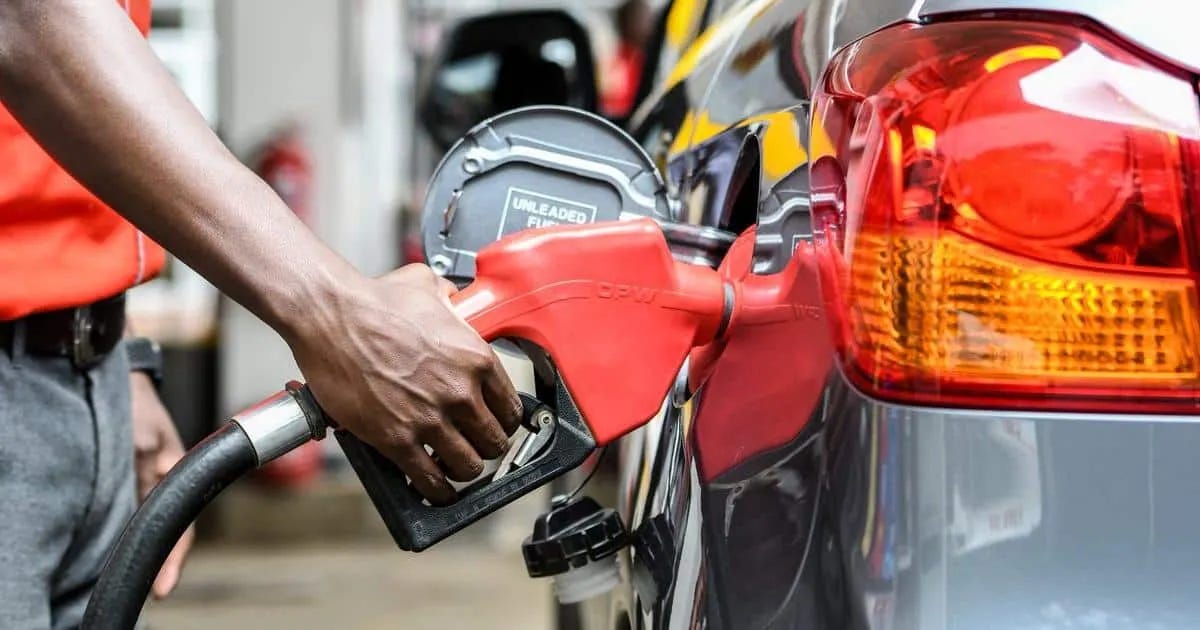Good Morning. Last week, The euro hit parity with the dollar, falling to its lowest level in 20 years. This means that the European and American currencies are worth the same amount.
Reason?
The higher energy prices and record inflation are to blame. This is because Europe is far more dependent on Russian oil and natural gas than the United States.
Fun fact: The euro hasn't been valued below $1 since July 15, 2002.
The U.S. Visa delays in Kenya
Ferdinand Omanyala, The African record holder from Kenya, one of the fastest sprinters of all time, was supposed to fly to the United States on Monday, giving him five days to settle in before his first 100-meter race.
But with barely a day left to make the Friday evening start, he had yet to receive a U.S. visa, without which he would be barred from the competition. The document arrived a day before the race and he arrived with only a few hours to spare, yet he was required to compete with runners who had not just stepped off a plane.
Omanyala’s Visa Issues highlighted the U.S. Visa problem across Africa, where residents hoping to travel to the United States often face difficulties. Omanyala’s problems drew widespread attention in Kenya, where thousands face far slower timelines for visa appointments.
According to the State Department’s Bureau of Consular Affairs, the average wait time for a U.S. visitor visa appointment in Nairobi is 687 days — more than 3.5 times the average wait time for a U.S. traveler visa in London. The website also notes it takes roughly 665 days to get an appointment to process a U.S. student visa.
The website of the U.S. Embassy in Nairobi says that visa applications have resumed but officials note that
“we are faced with a significant backlog of cases resulting from closures due to COVID-19 and all applicants should expect delays”
CAPITAL MARKETS
NSE’s performance ranked 2nd poorest in Africa
The Nairobi Securities Exchange (NSE) gave investors the second-lowest return in Africa during the first half of the year. This is majorly attributed to the fleeing of foreign investors to developed markets due to the Russia-Ukraine crisis.
Nigeria’s stock market was the best, offering a return of 21.2% in the period. Morocco and Tunisia’s bourses recorded returns of negative 12.3% and 6.7% respectively.
South Africa’s Johannesburg Stock Exchange, Africa’s only tier-one market, recorded a return of negative 9.1%
Foreign investors withdrew a net of Ksh 12 billion from the NSE in the first half of the year, causing a fall in valuations of blue-chip stocks whose trades are usually dominated by this class of investors.
CONSUMER PRICES
1. Fuel pump prices to remain unchanged for the next month
President Uhuru Kenyatta rolled out a fresh round of fuel subsidies in a bid to prevent a rise in fuel prices. The government authorized the spending of Ksh 16.67 billion to retain current retail fuel prices for another 30 days.
Over the past year, Kenya has spent over $860m to subsidize fuel in the face of rising prices in the global market.
The fuel stabilization program has ensured that fuel prices remain the most affordable in the East and Central Africa Region, further cushioning Kenyans from the high cost of living already experienced.
2. Wheat flour prices expected to drop in October
The price of wheat products is expected to drop in October after millers placed orders for the commodity at a time its price in the international markets has declined by 36%
Millers say the orders they are making now will be delivered at the port of Mombasa port in October as there is normally a three-month lag on shipment.
About 66% of the wheat that Kenya imports come from Russia and Ukraine. The current blockade saw a 400-gram bread shoot to Ksh 55 from Ksh 50 with a two-kilogram packet of flour now retailing at Ksh 202 from Ksh 150 in April.
ENERGY
Produce more than 1 megawatt from solar? You will need to sign Power Purchase Agreements (PPAs)
All homeowners and businesses producing more than one megawatt of electricity from solar might be required to sign Power Purchase Agreements (PPAs) with Kenya Power.
This requirement is contained in the Net-Metering Regulations 2022 that are open for public scrutiny before the Energy ministry finalizes them.
under the requirements
The power homeowners and businesses can generate has been capped at one megawatt of power.
The producers will be allowed to sell electricity to other consumers on a first-come-first-serve basis.
Persons who generate more than one megawatt will be compelled to sign PPAs with Kenya Power to ensure fixed and predictable tariffs.
What you must know
The regulations will bind power generated from solar, geothermal, small hydropower, biogas, and biomass among other clean sources.
Homes and businesses generating clean power for internal use and sale must be licensed by the Energy and Petroleum Regulatory Authority.
The IMF board to review Kenya’s request for an additional Ksh 28 Billion emergency loan
The IMF board will meet today to review Kenya’s request for an additional Ksh 28 Billion emergency loan.
The IMF revealed that Kenya had requested certain waivers on the program, indicating the country has failed to meet some of the conditions set in April last year when the fund approved a Ksh 257 billion loan to Kenya.
Kenya was expected to:
a.) Reform State enterprises
b.) Conduct a special audit on Covid-19 expenditure
c.) Enforce wealth declaration by public servants to access the loan in tranches
d.) Make public the ownership details of all companies that are awarded public tenders.
The government is yet to fully implement the common payroll system
WHAT YOU MIGHT HAVE MISSED
Full Interoperability of Mobile Money Operators Becomes Effective
On Friday, The Communications Authority of Kenya (CA) and the Central Bank of Kenya (CBK) launched the interoperability for the pay-bill service. This means that Airtel and Telkom users can now access Safaricom’s pay bill platform and enjoy the seamless transfer of money through merchants attached to different operators.
The court suspends the planned subdivision of Kenyatta University Land
The court blocked the planned subdivision of Kenyatta University’s land pending the determination of a petition filed by the Law Society of Kenya (LSK). The Environment and Land court judge granted the order barring the university’s council from surrendering title documents of the contentious land as directed by the Head of Public Service.
Background: The 410-acre land adjacent to Kenyatta University has been a source of dispute which led to the fallout between President Uhuru Kenyatta and the institution’s management last week. Kenyatta University’s Vice-chancellor was forced to resign as the government disbanded the university council for refusing to surrender the title.
High Court orders re-opening of Keroche breweries
The High Court has ordered Kenya Revenue Authority (KRA) to reopen Keroche Breweries plant in Naivasha pending the hearing and determination of a suit.
KRA shut down Keroche Breweries on May 15 after the brewer failed to honor a repayment plan that required it to settle Ksh 957 million shillings in 2 years.
The courts struck a new repayment schedule which requires KRA to pay an initial Ksh 8 million as the first installment on the tax arrears and thereafter pay a similar amount on the 30th day of each month until the next hearing date.
Nairobi Hospital is opposed to a footbridge connecting it to Kenyatta National Hospital
The Nairobi hospital wants the Kenya Urban Roads Authority (Kura) to suspend the construction of a footbridge connecting its facility to Kenyatta National Hospital along Ngong road saying it is endangering the safety of patients at the hospital.
The hospital’s chief executive James Nyamongo stated that works on the footbridge must be suspended as it exposes the public to radioactive exposure.
The market value of Limuru Tea jumps to Ksh 1 billion
The market value of Limuru Tea jumped to Ksh 1 billion after US-based private equity firm CVC Capital Partners made a takeover offer to the agricultural firm’s minority owners.
The US fund bought a 52% stake in Limuru Tea from Unilever triggering the law that compels investors who directly or indirectly buy more than 25 percent of a company to make a takeover offer to the rest of the shareholders.
The announcement by CVC Capital to make a buyout offer has prompted the price gain as shareholders anticipate the US fund paying a premium on the company’s recent trading price.
Kenya Airways carrying capacity to Europe slashed
Kenya Airways’ passenger capacity to Europe has been slashed by 22%, with the airline forced to fly with empty seats after Amsterdam-based Schiphol International Airport reduced the national carrier’s passenger capacity. At least 13,000 seats would be slashed daily as the busy summer season begins.
Schiphol is a central international transit hub in Europe.







